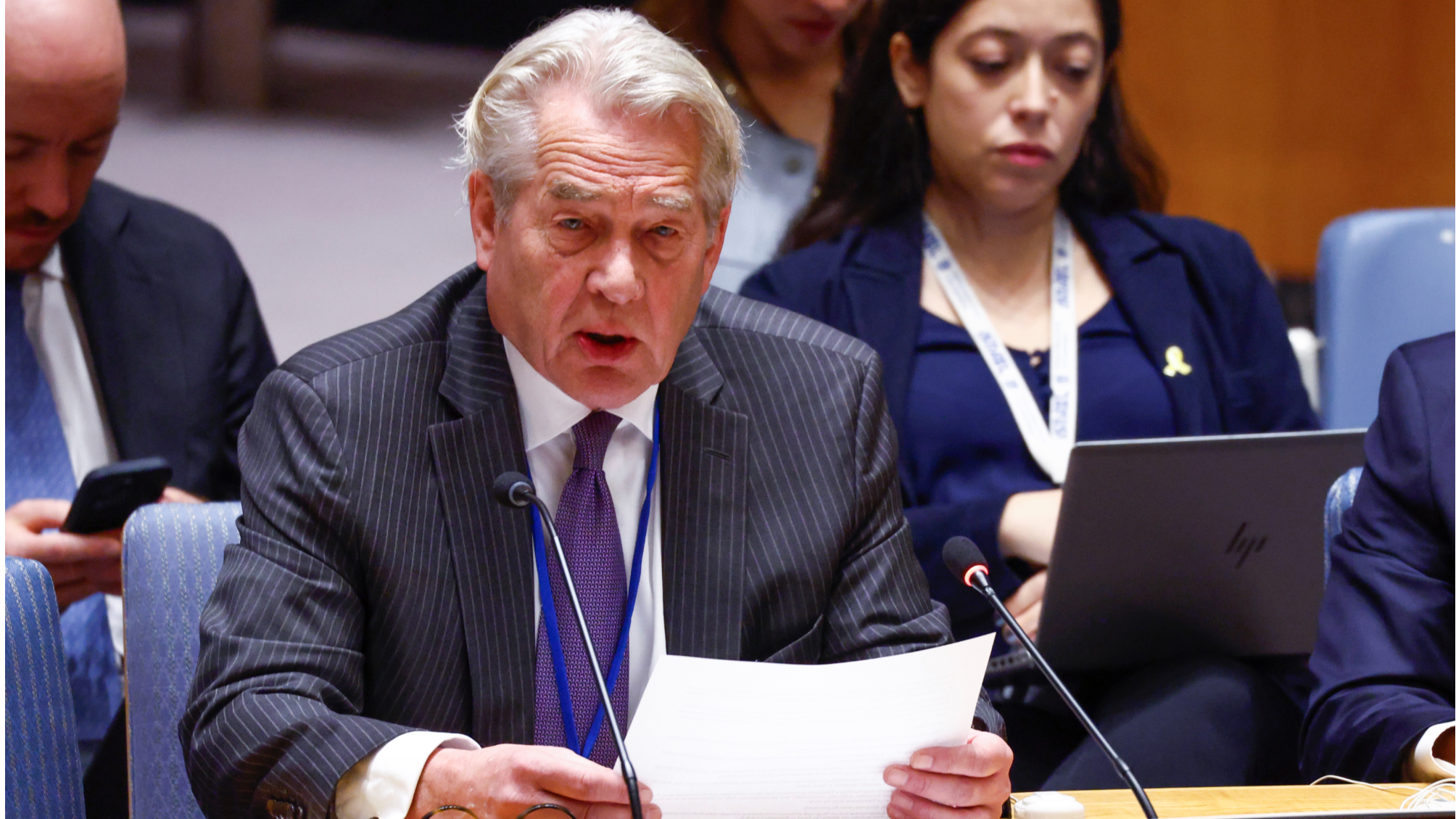
As leaders of the G20 countries reiterated their demands for a comprehensive cease-fire in Gaza and Lebanon, the United Nations and analysts urged world governments to do everything in their power to reverse the ongoing crises.
Their calls included preventing an impending Israeli ban on the United Nations Relief and Works Agency for Palestine Refugees in the Near East (UNRWA).
UN Special Coordinator for the Middle East Peace Process Tor Wennesland told the UN Security Council that the region “is at a grim crossroads” in a briefing on the situation in the Middle East on Nov 18.
READ MORE: UN chief calls for effort to establish nuclear-weapon-free zone in Middle East
The fighting between Israel and Hamas had spread to the region, dragging in non-state armed groups and “now engulfing large swaths of Lebanon”, he said.
“We are living a nightmare. The trauma and grief that has been unleashed is immeasurable … These events will reverberate for generations and shape the region in ways we cannot yet fully comprehend,” said Wennesland.
Peter Mohan Maithri Pieris, chair of the UN Special Committee to Investigate Israeli Practices, said Israel’s attacks on Gaza turn the clock back to an “era of unchecked barbarity”.
Meanwhile, the G20 Rio de Janeiro Leaders’ Declaration reiterated both the national positions of members and the resolutions adopted at the UN Security Council and the UN General Assembly.
It also emphasized that all states must act in a manner consistent with the purposes and principles of the UN Charter.
“We affirm that all parties must comply with their obligations under international law, including international humanitarian law and international human rights law, and in this regard condemn all attacks against civilians and infrastructure,” the G20 communique read.
“While expressing our deep concern about the catastrophic humanitarian situation in the Gaza Strip and the escalation in Lebanon, we emphasize the urgent need to expand the flow of humanitarian assistance and reinforce the protection of civilians and demand the lifting of all barriers to the provision of humanitarian assistance at scale,” it continued.
The G20 leaders also affirmed the Palestinian right to self-determination and their unwavering commitment to the vision of the two-state solution where Israel and a Palestinian State live side by side in peace within secure and recognized borders, consistent with international law and relevant UN resolutions.
“We are united in support for a comprehensive cease-fire in Gaza in line with UN Security Council Resolution 2735, and in Lebanon that enables citizens to return safely to their homes on both sides of the Blue Line,” read the declaration, referring to the demarcation line between Israel and Lebanon.
Haydar Oruc, a former researcher at the Center for Middle Eastern Studies in Turkiye, told China Daily, that this G20 summit has become a more important opportunity than previous summits because of its timing.
He cited the just-concluded reelection of Donald Trump in the United States and the “strong expectation that Trump's likely Middle East policy will again be Israel-centered” and not recognize Palestinian’s right to self-determination.
Oruc noted that while there is a strong reference to the situation in Gaza in the G20 summit’s final declaration, there is no proposal to impose sanctions on Israel if it continues its attacks.
“Therefore, on the margins of the G20 summit, concrete steps must be taken to stop Israel,” said Oruc.
He said that the proposed arms embargo on Israel put forward by Turkiye — supported by 52 countries and international organizations — should be brought to the UNSC as a G20 proposal and implemented immediately.
Arhama Siddiqa, a research fellow at the Institute of Strategic Studies Islamabad in Pakistan, said the duality of the US stance — calling for an end to the violence while simultaneously supporting Israel's military — raises serious doubts about the feasibility of any lasting peace.
She said billions of dollars have been funneled into sustaining the US defense industry's dominance, a reality that does not bode well for a genuine cessation of hostilities.
READ MORE: Chinese envoy calls for strong actions from UN Security Council in Middle East
“Unity remains the cornerstone of any meaningful resolution, yet it is glaringly absent in the global discourse,” said Siddiqa.
“The challenge lies not only in achieving consensus but also in ensuring that actions align with the rhetoric of peace and justice,” she said.
“The question now is whether the international community, particularly under US leadership, is willing to transcend its contradictions and act decisively to end the cycle of violence and oppression,” Siddiqa added.
Contact the writer at jan@chinadailyapac.com


